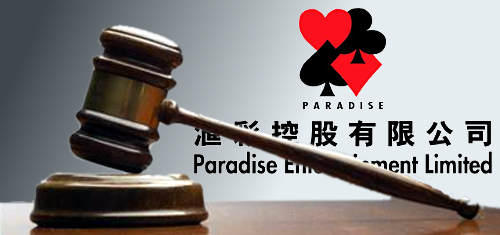 The casino industry appears to have witnessed the end to one of the most contentious intellectual property disputes in its history.
The casino industry appears to have witnessed the end to one of the most contentious intellectual property disputes in its history.
This week, Hong Kong-listed gaming device maker Paradise Entertainment Ltd informed the market that Macau’s Court of First instance had dismissed a patent infringement suit filed by the Asian division of US rival SHFL Entertainment, a division of Bally Technologies, which is itself owned by Scientific Games Corporation.
The case was tossed after SHFL Macau withdrew its claim that Paradise subsidiary LT Game’s patent claims on a multi-player, live-dealer electronic table game (ETG) had abused SHFL’s own intellectual property holdings.
The fight, which dates back to 2012, was waged not only in the courts, but also on the floor of local gaming conventions, including G2E Asia, with injunctions flying hither and yon, causing much uproar and acrimony between eastern and western interests.
Lower courts had routinely sided with LT Game and SHFL appears to have accepted the futility in pursuing the matter further. Underscoring their victory, Paradise said SHFL had also been ordered to pay Paradise’s legal costs.
The ETG in question proved popular with casinos during the years before Macau’s downturn began in earnest. With Macau sticking to its controversial gaming table cap and VIP gamblers still as plentiful as stars in the sky, the ETG – which counted as a single table toward the cap – allowed casino operators to reallocate scarce tables to their VIP rooms, while allowing ETG to serve more budget-conscious mass market gamblers.
Paradise followed up its legal victory by inking a long-term ETG deal with a different US rival, International Game Technology (IGT). The deal allows IGT exclusive access to Paradise’s ETG patents, technology and other intellectual property, with the notable exception of the ETG technology used exclusively in Macau.
In exchange, IGT will pay Paradise $13m up front, with earn-out payments each quarter for the next 15 years. Paradise says these payments will range between 3% and 12% of IGT’s revenue from the licensed products. The deal replaces a pact the two companies inked in 2014 to allow each firm to expand beyond its traditional core markets.
